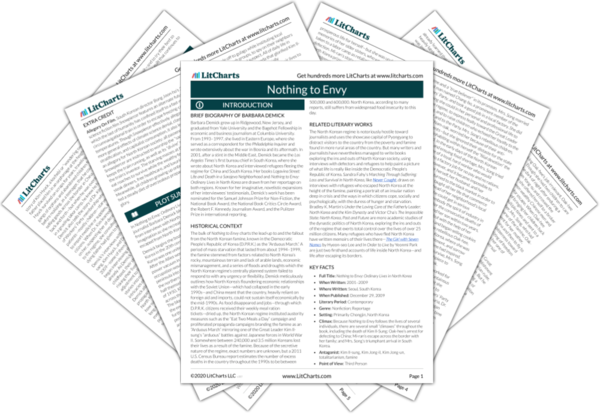LitCharts assigns a color and icon to each theme in Nothing to Envy, which you can use to track the themes throughout the work.
Propaganda, Misinformation, Deception, and Control
Isolationism and Self-Reliance
Surveillance, Trust, and Relationships
Scarcity, Starvation, and Desperation
Escape, Trauma, and Survivor’s Guilt
